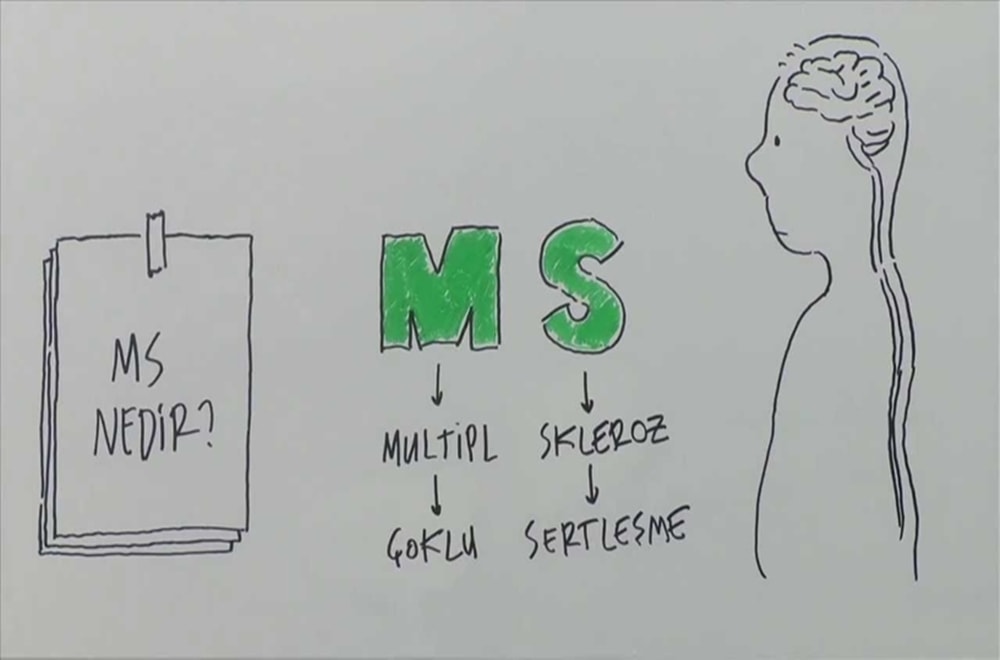How to Manage the Mental Effects of Multiple Sclerosis: Your Guide

Multiple sclerosis (MS) can cause not only physical symptoms, but also cognitive — or mental — changes. For example, it’s possible for the condition to affect things such as memory, concentration, attention, ability to process information, and the capacity to prioritize and plan. In some cases, MS may also affect how you use language. If you start to notice signs of cognitive changes, it’s important to take a proactive approach to managing and limiting them. If left unmanaged, cognitive changes can have significant effects on your quality of life and day-to-day activities.
Read on to learn about some of the ways you can cope with the potential mental effects of MS.
Let Your Doctor Know If You Develop Cognitive Symptoms
If you notice changes in your memory, attention, concentration, emotions, or other cognitive functions, call your doctor. They might use one or more tests to better understand what you’re experiencing. They might also refer you to a psychologist or other healthcare provider for more in-depth testing. Cognitive testing can help your doctor identify changes in your cognitive abilities. It might also help them pinpoint the cause of those changes.
MS is only one of many conditions that can affect cognitive health. In some cases, other physical or mental health factors might be playing a role. Emotional and cognitive symptoms of MS to look out for can include:
- having trouble finding the right words
- having trouble with decision-making
- having more trouble concentrating than usual
- having trouble processing information
- lowered job or school performance
- more difficulty performing normal tasks
- changes in spatial awareness
- memory problems
- frequent mood changes
- lowered self-esteem
- symptoms of depression
Ask Your Doctor About Cognitive Screening
With MS, cognitive symptoms may develop at any stage of the condition. As the condition progresses, the possibility of cognitive issues increases. Cognitive changes can be subtle and difficult to detect. To identify potential changes early, your doctor may use screening tools. According to recommendations that the National Multiple Sclerosis Society published, people with MS should be screened for cognitive changes every year. If your doctor hasn’t been screening you for cognitive changes, ask them if it’s time to start.
Follow Your Doctor’s Prescribed Treatment Plan
To help limit cognitive symptoms, your doctor might recommend one or more treatments. For example, several memory and learning strategies have shown promise for improving cognitive function in people with MS. Your doctor might teach you one or more of those “cognitive rehabilitation” exercises. You could practice these exercises in a clinic or at home.
Regular physical exercise and good cardiovascular fitness might also promote good cognitive health. Depending on your current day-to-day activities, you might be advised to get more active. Some medications can cause side effects that affect your cognition, or mental well-being. If your doctor believes your cognitive symptoms are a side effect of medication, they might suggest a change to your treatment plan. Your doctor might also recommend treatments for other health conditions that can affect your cognitive functions. For example, if you have depression, they might prescribe antidepressant medications, psychological counseling, or a combination of both.
Develop Strategies To Cope With Cognitive Challenges
Minor adjustments to your activities and environment might help you manage changes in your cognitive abilities. For example, it might help to:
- get plenty of rest and take a break when you feel fatigued
- do less multitasking and try to focus on one thing at a time
- limit distractions by turning off the television, radio, or other sources of background noise when you’re trying to complete mental tasks
- record important thoughts, to-do lists, and reminders in a central location, such as a journal, agenda, or note-taking app
- use an agenda or calendar to plan your life and keep track of important appointments or commitments
- set smartphone alerts or place post-it notes in visible places as reminders to complete daily tasks
- ask people around you to speak more slowly if you’re having trouble processing what they say
- If you’re finding it difficult to manage your responsibilities at work or home, consider limiting your commitments. You could also ask for help from colleagues or family members.
If you can no longer work due to cognitive symptoms, you might be eligible for government-sponsored disability benefits. Your doctor may be able to refer you to a social worker who can help you learn about the application process. It might also help to visit a community legal assistance office or connect with a disability advocacy organization.
Although MS can potentially affect your memory, learning, and other cognitive functions, there are steps you can take to manage those changes. Let your doctor know if you experience any cognitive symptoms. They might recommend:
- cognitive rehabilitation exercises
- changes to your medication regimen
- adjustments to your daily activities
You can also use a variety of strategies and tools to cope with cognitive challenges at work and home.
References
This article written by healthline website. You can find the original version here.







